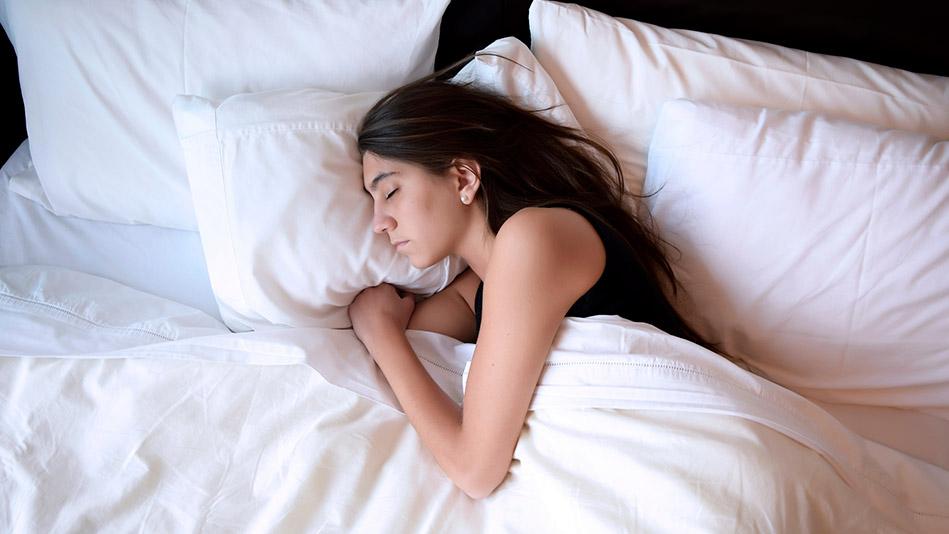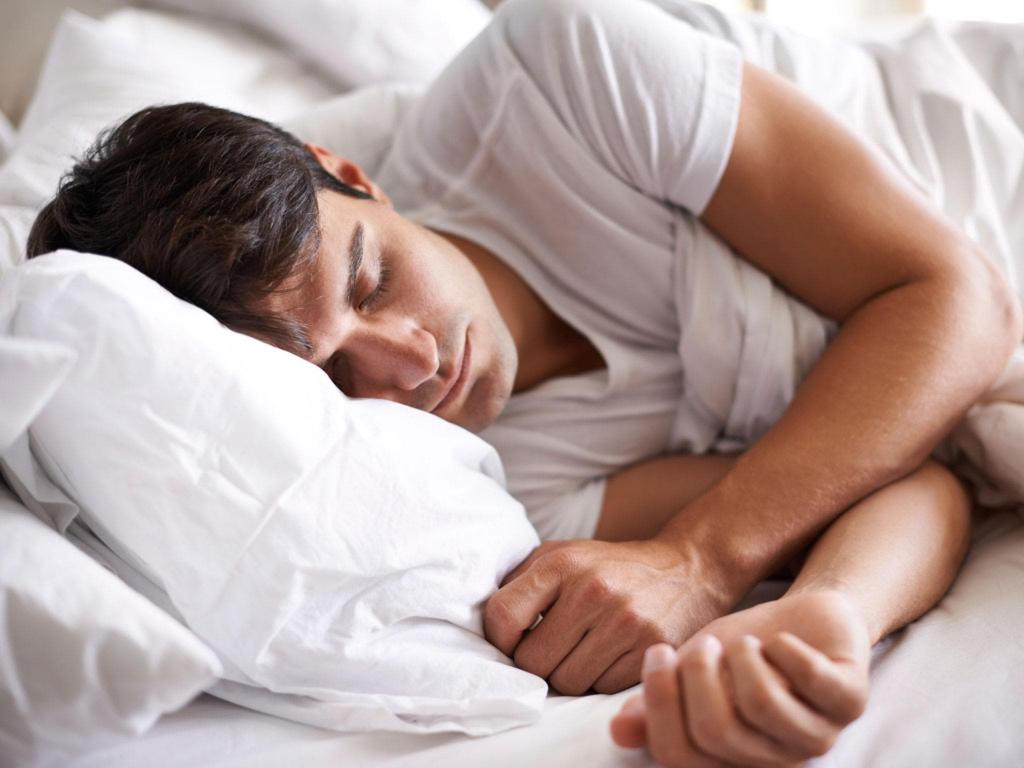You may be unable to get to sleep early for a variety of reasons. If you’re not a morning person, or if you have work or family commitments that keep you up late, you may not be able to get up early. Insomnia and anxiety are two common sleep disorders that can make it difficult to get off to sleep. In other cases, the only time you have to unwind is at night, so you put off going to bed early out of spite and end up staying up late, which has a bad impact on the next day.
A night’s sleep for an adult should be between seven and nine hours. 35% of Americans, on the other hand, sleep for less than seven hours per night. Your sleep schedule may be disrupted by an early job or school start time, making it difficult to get a good night’s rest. You may be able to educate your body to go to sleep early by using sleep hygiene strategies.
What’s Stopping You From Getting To Bed On Time
Insomnia, sleep apnea, and other medical issues that could be treated with medication are the focus of much of the study on sleep deficiency-related health concerns. But a lot of the time, our inability to sleep is due to a problem with our habits.

Typically, when we think about procrastination, we think of it as something we dislike doing. However, if you consider procrastination before going to bed, the situation is rather different. What are we trying to avoid by refusing to go to bed?
To help you get to bed on time, here are some roadblocks you may encounter:
You didn’t get everything done yet.
You may come to the realization at the end of the day that your expectations for the day have not been met. If your expectations aren’t met, instead of rearranging your schedule, you may respond, “I’ll just tackle a couple more items on my to-do list right now.”
You feel entitled to having extra time at the end of your day.
Getting more work done, watching TV, or just relaxing before going to bed feels like a right for many people. If you think you deserve a break at the end of the day, you may be right! This sensation of deserving more time, however, may be causing you to prioritize badly because it is pushing you to stay up later than usual in order to get more things done.
In his podcast on bedtime procrastination, Joel Anderson makes an excellent analogy:
This is akin to us going to the mall and wanting a new pair of shoes, but not being able to afford them. Not going to bed is akin to spending money we don’t have since it makes us feel like we deserve the time.
You’re lacking proper signals to keep you aware of the time.
Now that we have DVRs and Netflix, and we can watch TV whenever we want, we no longer have that signal when an episode ends that it’s exactly 9:30pm. You might say, “I’ll just watch this one episode,” or, “I’ll just check my email for a minute,” but you know that if you have more than a few emails waiting for you, it’ll likely end up being longer than a minute. It’s easy to become sucked into these activities and lose track of time if we don’t keep track of how much time we spend on them.
Develop an Evening Routine
Because DVRs and Netflix allow us to watch TV whenever we want, we no longer receive the 9:30pm signal at the end of each episode. There are times when you might say, “I’ll just check my email for a minute,” but you know that if you’re dealing with more than a few emails, it’ll take more than a minute. It’s easy to become sucked into these activities and lose track of time if we don’t keep track of how much time we spend on them.
Your nightly ritual can involve anything from reading a good book to taking a hot bath to meditating.
- Taking a Warm Shower or Bath can help you relax and de-stress before going to bed. You may fall asleep more quickly and get a better night’s rest as a result of this habit, according to study.
- A variety of health benefits can be reaped from the regular practice of meditation. Meditation before going to sleep might help alleviate anxiety that could otherwise keep you awake, lessen insomnia symptoms, and improve sleep quality.
- Another great approach to unwind and fall asleep is by reading a book. For those who find it difficult to fall asleep, it’s worth noting that reading on a tablet rather than on paper has been shown by some researchers to postpone deep sleep.
- While you’re getting ready for bed, try listening to some soothing music to help you relax. Listening to soothing music has been shown to reduce stress and increase sleep quality.
- Write down your worries in a journal if stress and to-do lists keep you awake at night. Many studies have shown that writing down your worries and anxieties can help you relax and drift off to sleep more quickly.
Maintain a Consistent Sleep Schedule
It can be tough to get to sleep earlier if you go to bed at various times during the day. Setting your alarm and retiring at the same time each day aids your body in establishing a habit. Maintaining a regular sleep schedule, even on weekends and days when you would prefer to sleep in, is beneficial. The 15-minute intervals can help you adjust to an earlier bedtime as you become used to the shift.

Sleeping too late in the day might be detrimental to one’s ability to have a good night’s rest, according to many people. Try to avoid naps in the afternoon and at night if you are attempting to get to sleep earlier in the day.
Exercise
Regularly following public health recommendations for exercise has been demonstrated to improve sleep quality in studies. Experts, on the other hand, advise against strenuous exercise before bedtime. To avoid disrupting your sleep cycle, avoid strenuous exercise less than an hour before bedtime.
Make sure you’re exercising at a low or moderate intensity level before going to bed. Gentle stretching and breathing exercises are part of some contemplative activities like yoga, tai-chi, or Qigong. Doing these things before bedtime can help you wind down and get ready for sleep. Particularly, yoga appears to aid in the management of sleep disorders and alleviate anxiety.
Minimize Blue Light Exposure and Technology Use Before Bed
The sleep hormone melatonin can be inhibited by exposure to strong light in the evening, making it harder to fall asleep early.
Blue light is a very high-energy kind of light emitted by electronic gadgets including smartphones, tablets, laptops, and televisions. In the daytime, exposure to blue light is critical for alertness, but at night, when humans are particularly susceptible to this high-energy light input, it is advisable to avoid using these gadgets.
Create a Soothing Bedroom Environment
If you want to have a good night’s sleep, make sure your room is ready for it. When it comes to creating a cozy bedroom, there are a number of ways you can go about it:
- Don’t let artificial light such as that from televisions, computers, and other electronic devices lull you into a false sense of sleep. Light from the sun and streetlights can be blocked out by heavy curtains or blackout curtains. An eye mask can also be used.
- For a good night’s rest, it’s best to keep the temperature down. A fan, a lower temperature, and bedding that is suited for the season are all suggestions if you live in a hot region.
- You can get a good night’s sleep in a quiet room without being distracted by noise. The use of earplugs is an excellent method of reducing background noise. There are also devices like white noise machines and ceiling fans that can be used to mask undesirable noises.
- Keep Your Laptop Out of Your Bedroom: Keeping your laptop out of your bedroom helps reinforce the mental relationship between your bed and sleeping. For the same reason, if you still can’t sleep after 20 minutes, leave the room and engage in anything calming until you do.
Avoid Caffeine Later in the Day
An 8-ounce cup of coffee provides the average American with roughly 165 mg of caffeine each day. Caffeine levels in sugary drinks might be high as well. As a cheap and effective productivity tool, coffee can also disrupt sleep.
Adenosine, a chemical that regulates sleep, is affected by caffeine. It’s best to avoid caffeinated beverages in the late afternoon and evening because their alerting effects can linger up to six hours after consumption. Nicotine and alcohol should also be avoided throughout the evening.
Try a Natural Sleep Aid
You can use a variety of natural sleep aids to get to sleep earlier:
- Inducing sleepiness with melatonin helps regulate your circadian rhythm. Melatonin supplements taken shortly before night, however not intended to be a long-term cure, may help some people go off to sleep more quickly.
- Certain herbal teas have been found to relieve fatigue and improve sleep quality in pre-clinical investigations Drinking too much liquid before going to bed can cause you to wake up during the night, which can impair your sleep.
- Insomnia can be treated with the use of aromatherapy, despite the fact that current data is inconclusive. Lavender, for example, may enhance the quality of one’s sleep.
Before using a natural sleep aid, talk to your doctor. There’s a chance they’ll have advice tailored to your personal sleep objectives. If you’re having trouble getting to sleep early, these tests can help you figure out if you have a sleep issue.
5 Steps To Get Yourself To Go To Bed Earlier Tonight
A precise scientific method for getting oneself to bed on time that is also practical would be ideal. Pleased to hear this. There is a You’ll be getting to bed sooner in no time if you follow these procedures to the letter.
Step 1: Reduce light exposure before bed.
Your retinas have two functions: they receive visual information and house photoreceptors that track the ebb and flow of daylight. In order to maintain a 24-hour cycle, your body relies on the hormone melatonin to adjust its internal clock to light. Melatonin, a sleep-inducing hormone, is secreted by the body during night. Although blue light (emitted by energy-efficient lights and most electronic devices) does not produce melatonin, it interferes with your circadian cycle when your eyes are exposed to it.
Install f.lux on all of your devices immediately. Your device emits less blue light at night when F.lux is enabled, because the quantity of blue light it emits is adjusted based on the time of day (so you’ll take in less blue light at night). Instead of turning on the TV or perusing Reddit, try reading a book or having a chat with your partner.
Step 2: Make the change gradual.
If you’re currently going to bed at 11pm, don’t decide to go to bed at 9pm tonight. For starters, your internal clock resets around once a day, and some body systems may take longer to re-set. If you’re attempting to change your behavior in any way, you should take tiny measures to build up to your larger goal rather than attempting to jump right into the finish line and missing out on your goal.
While increasing your bedtime can be beneficial, it’s also crucial that you allow your body to acclimate. Get up and do something else if you can’t get to sleep after 10-15 minutes of tossing and turning. Stimulus regulation, a central component of cognitive behavioral therapy for insomnia, tries to associate the bed with sleeping rather than stimulating action (like watching TV). Limit your activities in bed to sleep and sex, and leave if you don’t fall asleep within 10 minutes.

Determine right now that you will go to bed 15 minutes earlier than normal tonight. Make a note of it or speak it out. Give yourself license to fail, as long as you make an effort to go to bed at the scheduled hour.
Step 3: Set up your environment to avoid objections.
One of the most common reasons we fail to accomplish our goals is that we fail to plan adequately. Before you do anything else, visualize the entire evening in your mind’s eye. Like, “I’ll eat dinner at 7pm, work a bit more, watch an episode of this show, clean my teeth, and go to bed by 10pm,” or anything along those lines.
Great! You have a strategy. Your attention and ego resources are already drained by the time the day ends, and your willpower may not be sufficient to keep you on track.
As a result, you’ll need to think through your precise plan, and identify and rehearse probable objections, before putting it into action. The aim is to construct your environment in such a way that you are less likely to become sidetracked and abandon your plan if you plan accordingly.
It is akin to the story of Ulysses, who clung to his mast in order to withstand the call of the Sirens. If you can’t resist watching TV tonight, I don’t know what will. Moving the TV to a different room or hiding the remote could help. Alternatively, you can program a timer to turn off the television.
Immediately: Take a moment to imagine what you’ll be doing this evening. Use dates and times to help you be as specific as possible. Now consider all of the potential roadblocks that could prevent you from executing your strategy as planned and devise strategies to overcome them.
Step 4: Set reminders for yourself to stick to your plan.
Setting reminders for yourself can help you stay on track with your plans for the evening. You may have noticed that you’ve been unable to keep track of how long it has been since your last post.
When it comes to reminders, the concept here is that they assist you establish small habits by providing triggers for specific actions. Think of it this way: When my alarm goes off, I’m going to get comfy on the couch and start watching Netflix.” Before I go to sleep, I will brush my teeth and put on my pajamas. Making a series of triggers for each step in your sequence of occurrences can help you succeed with each subsequent desired activity.

Step 5: Make a public commitment.
Making a public pledge to complete a task is a terrific approach to hold yourself accountable. As a result of the fact that you don’t want anyone to notice that you’ve broken your promise, you’ll be far more inclined to keep your word. A commitment is more likely to be kept if it has been made public.
Immediately: Make a public commitment to going to bed at a specific hour each night. Make a pact with a friend to let them know what time you plan to retire for the night and to text them again if you fail to do so. Better still, let your friends and followers know on social media that you’ll be turning in for the night by posting or tweeting an announcement. If you’re online past your bedtime, your pals will be able to see it!
Vote for this post!

![Top Rated CPAP Machine Buyer’s Guide [current_date format=’m/Y’]](https://bestpillowsleepers.com/wp-content/uploads/2023/03/best-cpap-machine-img_6405d72310053-400x300.jpg)
![The 11 Best Cooling Weighted Blankets [current_date format=’m/Y’]](https://bestpillowsleepers.com/wp-content/uploads/2023/01/best-cooling-weighted-blankets-img_63d4ff15c615d-400x300.jpg)
![Ultimate Guide to Choosing a Best Cooling Mattress Pads [current_date format=’m/Y’]](https://bestpillowsleepers.com/wp-content/uploads/2023/01/best-cooling-mattress-pads-img_63c403115126b-400x300.jpg)
![Ultimate Guide to Choosing a Best Cooling Mattress [current_date format=’m/Y’]](https://bestpillowsleepers.com/wp-content/uploads/2023/01/ultimate-guide-to-choosing-a-best-cooling-mattress-img_63bcdba870d77-400x300.jpg)
![Ultimate Guide to Choosing a Best Cooling Comforters [current_date format=’m/Y’]](https://bestpillowsleepers.com/wp-content/uploads/2023/01/ultimate-guide-to-choosing-a-best-cooling-comforters-img_63bba2f5cd3ce-400x300.jpg)